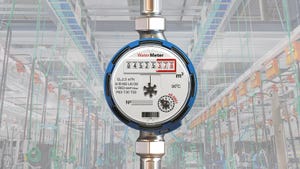Safeguarding Equipment While Reducing Power ConsumptionSafeguarding Equipment While Reducing Power Consumption
Learn to keep your equipment safe, while still reducing power consumption.

As one places more infrastructure into the current data center platform, one can begin to run into power and control challenges. As the cost of power continues to rise, while the demand for computing capacity grows at an unprecedented rate, balancing the costs of cooling equipment against the need for uninterrupted uptime presents a constant challenge.
Here’s something to consider: Studies show that raising air intake temperatures by just 1 degree Fahrenheit (or about .6 degrees Celsius) can reduce a data center’s annual power expenditures by from 2 percent to as much as 5 percent. Clearly, increasing temperatures is a sure path to ongoing power savings that enhance your organization’s bottom line, year after year. But determining the “right” amount of cooling in the data center can seem nearly impossible: If a data center is too hot, equipment reliability suffers. Over-cool your data center and energy bills can needlessly skyrocket. It is a fine line, but one that must be addressed if maximum value of IT as a strategic advantage is to be realized. In this whitepaper from RF Code, we quickly see direct examples around the need for better power controls and monitoring within the data center.
It’s important to understand that deploying efficiency does not have to impact the performance of your data center. As the whitepaper outlines, there are several key factors to consider when looking at power consumption and utilization. For example:
Learning How to Keep your Gear Safe While Still Reducing Power Usage
Understanding How to Increase Temperatures and Decrease Costs without Risking Equipment Failure
The Power of Deploying Wire-Free Sensors from RF Code: Real-Time Environmental Visibility in the Data Center
Taking Rack Cooling Index (RCI) & Return Temperature Index (RTI) into Consideration: Simple Metrics for Measuring Efficiency
Following ASHRAE Guidelines & Achieving Data Center Efficiency with RF Code
Download this whitepaper today to learn how power controls can have direct cost benefits and direct infrastructure improvements. For example, a typical 8,000 square foot data center has an annual power expenditure of about $1.6 million. Raising the air intake temperature set point just 2 degrees results in annual savings of at least $64,000.00. By following ASHRAE’s latest guidelines, many data centers can increase temperatures by 10 or more degrees without risking equipment failure, delivering massive savings directly to the organization’s bottom line.
About the Author
You May Also Like









